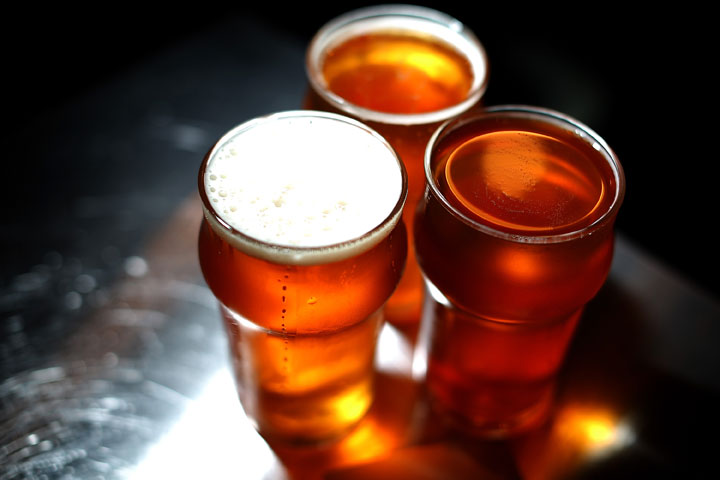CAMPBELLTON, N.B. – A judge has dismissed charges against a New Brunswick man charged with illegally importing 14 cases of beer and three bottles of liquor from a Quebec border town, in a ruling the defence lawyer says “huge” ramifications.

Judge Ronald LeBlanc threw out all charges Friday against Gerard Comeau, one of four people facing charges after a police “sting” operation in 2012.
“Essentially, Judge Leblanc’s decision confirms that what tens of thousands, potentially hundreds of thousands of New Brunswickers have been doing for the past 40 years is not a crime,” said Mikael Bernard after the ruling in Campbellton provincial court Friday.
READ MORE: New Brunswick liquor corp. defends restrictions on cross-border beer sales
In his 88-page decision, the judge cited the words of Canada’s founders, saying they never intended laws that blatantly block the free flow of goods within the new country.

Get breaking National news
“I find that the speeches and orations from the Fathers of Confederation prior to the enactment of the British North America Act, 1867 conclusively point to their desire to implement free trade as opposed to the elimination of customs duties as between the provinces,” he wrote.
Comeau was one of four people facing charges after a police “sting” operation in 2012.
- Two teens arrested in connection with First Nation double homicide in northern Quebec
- Unsealed court records allege Quebec militia plot to seize cottages by force
- U.K. lottery winner, 80, jailed in $424-million counterfeit drugs bust
- Luigi Mangione will not face death penalty in federal trial, judge rules
READ MORE: Moosehead worried of bootlegging increase if beer import rules change
His lawyer Mikael Bernard said the victory will have a big impact, beginning with showing that a traditional New Brunswick practice of bringing in multiple cases of Quebec beer was never illegal.
“Essentially, Judge LeBlanc’s decision confirms that what tens of thousands, potentially hundreds of thousands of New Brunswickers have been doing for the past 40 years is not a crime,” he said in a telephone interview.
The case is expected to have wider implications for interprovincial trade across the country.
Comeau’s defence was supported by the Canadian Constitution Foundation, which believes the case will eventually result in a challenge before the Supreme Court of Canada.
“A decisive win for all Canadians!” Ontario-based constitutional lawyer Arnold Schwisberg, who was part of Comeau’s defence team, said Friday in an email.
The New Brunswick Liquor Control Act prohibits anyone in the province from having more than 12 pints of beer that wasn’t purchased through a liquor store in the province.
That was the law RCMP were using in 2012 when they seized Comeau’s liquor and fined him $292.50 for bringing in the liquor.
On Friday, Comeau said he was “kind of pleased” with the decision.
“I was kind of surprised because the decision lasted two hours and 45 minutes, so sometimes it looked good, sometimes it didn’t look good,” he said.
The 62-year-old Tracadie man said the case wasn’t just about dodging a fine.
“The way I look at it, I’m a Canadian citizen,” said Comeau on Friday. “I don’t see any reason why I can’t go buy merchandise anywhere in this country and bring it home. You can buy anything else like cars, clothes, everything. Except for beer.”
During the trial, Comeau’s lawyers and the Crown delved into Canadian history, debating just what the framers of the 1867 founding document meant.
Andrew Smith, a professor of political history at the University of Liverpool in England, told the judge that a law banning the Quebec-to-border carriage of beer was a travesty of what the framers intended.
The defence had argued that the section of the Liquor Control Act is unconstitutional because Section 121 of the Constitution Act says all goods from a province are to be admitted free into each of the other provinces.
“Admitted free means of all impediments,” Smith had told the court in August of last year.
The Crown had countered that regardless of Section 121 of the Constitution Act, there are policies in place that limit free trade between provinces.







Comments